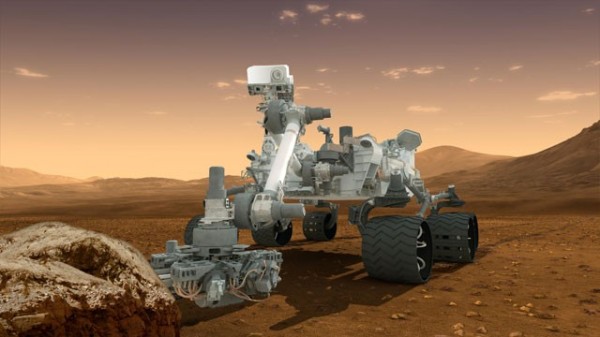Cuts to NASA: Curiosity To Be the Last Mars Rover?


NASA successfully landed its latest rover, Curiosity, late on Sunday night, within Gale Crater on the Martian surface. This is a huge triumph for the NASA team members who were prepared for the possibility of a landing failure. Over two-thirds of the previous Mars landing attempts have failed, making this mission's achievement an even bigger triumph.
Curiosity was designed to collect samples of mountain layers, as well as send color photos back to Earth. Researchers hope to gather evidence of whether or not Mars has ever sustained a climate favorable for life. The rover will search for environments where life might have existed in the past.
While this is exciting for scientists and most all Americans, the days of Mars exploration are quickly coming to an end.
Although it makes up for less than 1% of the federal budget, NASA has faced large cuts which have forced the agency to shelve many of its past undertakings. The president’s budget proposal for 2013 stipulates $17.7 billion for NASA which is only marginally less than in 2012, however the budget slashes funding for Mars exploration by more than $200 million, a near 40% cut.
At $2.5 billion, the Curiosity project is expected to exceed its proposed budget by 50%. NASA has long had a history of overrunning costs, a downfall which is hurting the agency from the inside out.
The cut to the Mars program will basically halt future projects until further notice. Those in support of NASA claim that the U.S. cannot afford to lose its leadership in the field of planetary exploration to other countries that are making it a greater priority.
The Mars program has enjoyed enthusiastic public support, and has successfully produced some amazing science. Robotic explorations are arguably the most scientifically important undertakings of the agency. The U.S. has, so far, surpassed any other country in terms of planet exploration. Cuts to the program will force the U.S. to take a step back and allow others to catch up and/or exceed.
The Planetary Society, a group which advocates for a greater future in space, will lobby members of Congress to increase or re-allocate portions of the NASA budget in order to bring back funding for Mars exploration.
Astronomer Phil Plait, wrote in a recent article concerning the upcoming budget situation of NASA,
Cutting back on science is cutting our future's throat. And this budget is reaching for the knife.
He argues that science and exploration are not enough of a priority for the American people, but that both have significant value that must be recognized.
Do you think NASA should be a bigger priority in upcoming federal budgets?



